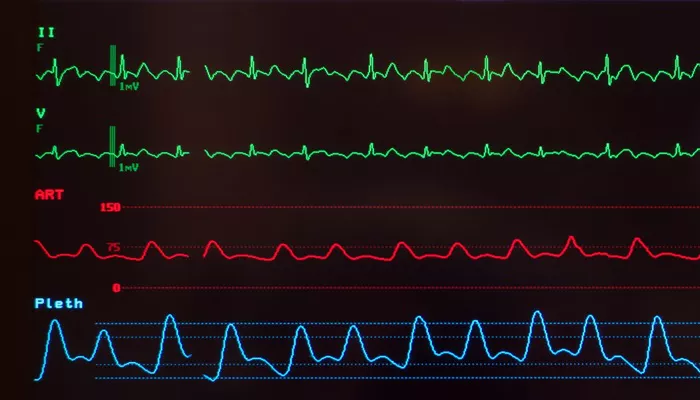Atrial flutter is a type of abnormal heart rhythm that can have serious consequences if left untreated. While stress is not a direct cause of atrial flutter, it can play a significant role in triggering episodes and exacerbating symptoms. As a cardiologist, I have seen firsthand how stress can impact the heart’s electrical system and contribute to the development of atrial flutter. In this article, we will explore the relationship between stress and atrial flutter, the mechanisms behind it, and strategies for managing stress to reduce the risk of complications.
What Is Atrial Flutter?
Atrial flutter is a type of supraventricular tachycardia, characterized by a rapid and regular heart rate originating from the atria, the upper chambers of the heart. During an episode of atrial flutter, the atria can beat at a rate of 250 to 350 beats per minute, causing the ventricles, the lower chambers of the heart, to beat faster as well.
Atrial flutter can be classified into two main types: typical and atypical. Typical atrial flutter is the most common form and is caused by a circular electrical current in the right atrium. Atypical atrial flutter can occur in various locations within the atria and is less common.
The Role of Stress in Atrial Flutter
Stress is a significant factor that can contribute to the development and progression of atrial flutter. When an individual experiences stress, the body releases hormones such as adrenaline and cortisol, which can have a direct impact on the heart’s electrical system.
The release of these hormones can lead to:
Increased heart rate
Irregular heart rhythms
Changes in the electrical properties of the heart muscle
These physiological changes can create an environment that is conducive to the development of atrial flutter.
Moreover, chronic stress can lead to structural changes in the heart, such as inflammation and fibrosis, which can further increase the risk of atrial flutter. Stress can also exacerbate underlying conditions that are associated with atrial flutter, such as high blood pressure, coronary artery disease, and heart valve disorders.
SEE ALSO: Which Arrhythmias Require Adenosine?
Symptoms And Complications of Atrial Flutter
Atrial flutter can cause a variety of symptoms, including:
Palpitations or a racing heart
Dizziness or lightheadedness
Fatigue and weakness
Shortness of breath
Chest discomfort
Fainting or near-fainting episodes
While some individuals with atrial flutter may not experience any symptoms, it is essential to recognize that the condition can lead to serious complications if left untreated. These complications include:
Blood clots: Atrial flutter can cause blood to pool in the atria, increasing the risk of clot formation. If a clot breaks off and travels to the brain, it can cause a stroke.
Heart failure: A persistently elevated heart rate can weaken the heart muscle over time, leading to heart failure.
Other complications: Atrial flutter can also lead to other cardiovascular issues, such as heart valve problems and pulmonary embolism.
Managing Stress to Reduce The Risk of Atrial Flutter
Given the strong link between stress and atrial flutter, it is crucial for individuals with the condition or those at risk to adopt stress management strategies. Here are some effective ways to manage stress and reduce the risk of atrial flutter:
Regular exercise: Physical activity can help reduce stress levels and improve overall cardiovascular health. Aim for at least 30 minutes of moderate exercise most days of the week.
Relaxation techniques: Practices such as deep breathing, meditation, and yoga can help calm the mind and body, reducing stress levels.
Cognitive-behavioral therapy (CBT): CBT can help individuals identify and manage stress-inducing thoughts and behaviors, leading to a reduction in stress levels.
Lifestyle modifications: Making healthy lifestyle choices, such as maintaining a balanced diet, getting enough sleep, and avoiding excessive caffeine and alcohol, can help manage stress and reduce the risk of atrial flutter.
Medication management: In some cases, healthcare providers may prescribe medications to help control heart rate and prevent complications associated with atrial flutter. It is essential to follow the prescribed treatment plan and communicate any concerns or side effects to the healthcare provider.
Conclusion
Stress is a significant factor that can contribute to the development and progression of atrial flutter. By understanding the link between stress and atrial flutter, individuals can take proactive steps to manage stress and reduce the risk of complications. Regular exercise, relaxation techniques, cognitive-behavioral therapy, and lifestyle modifications are effective strategies for managing stress and promoting overall cardiovascular health.


